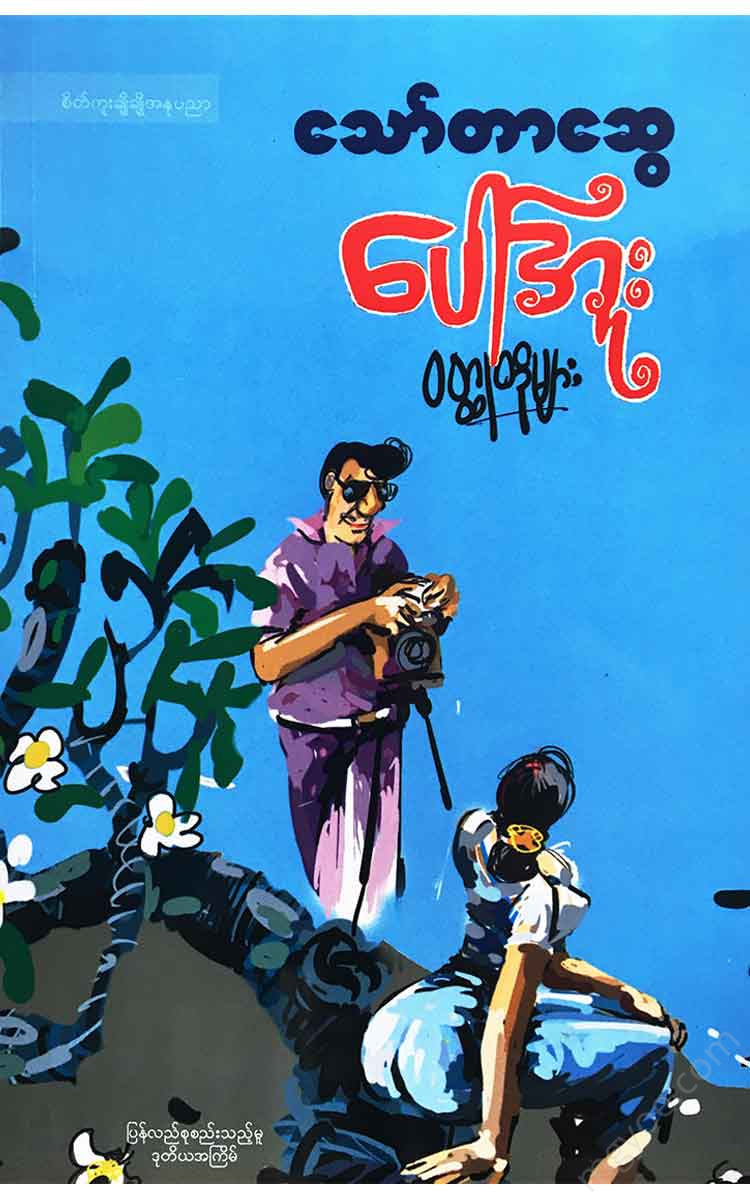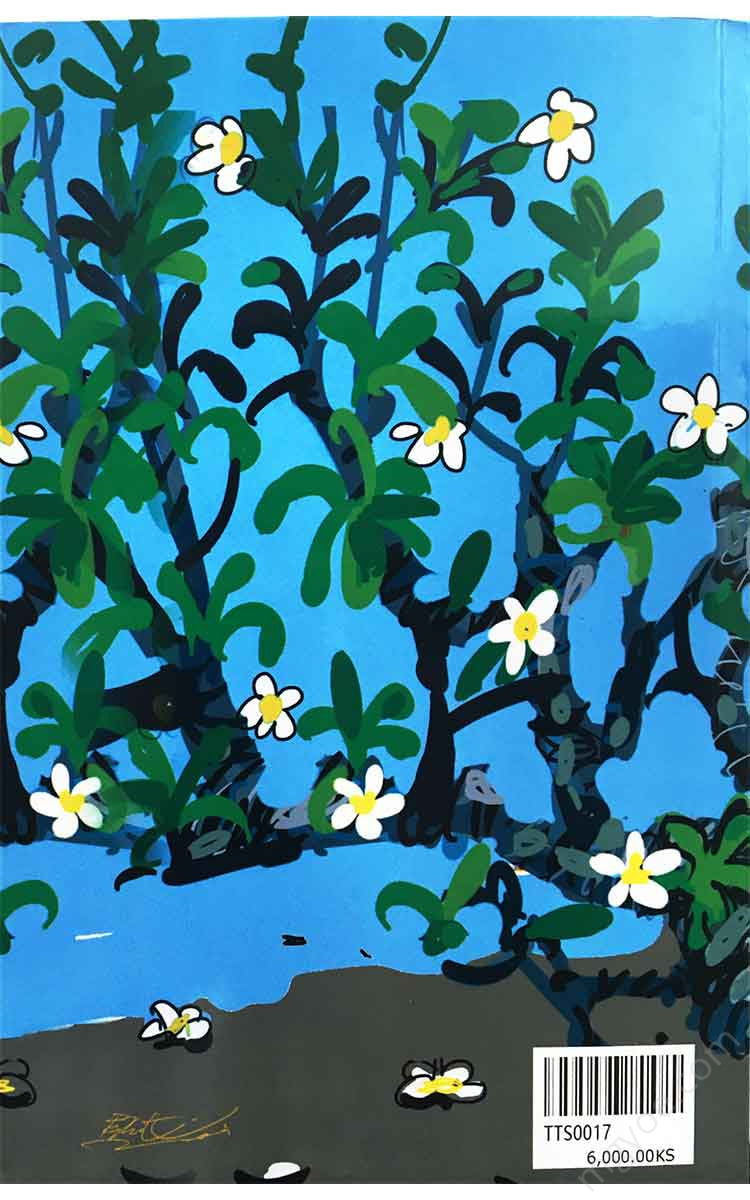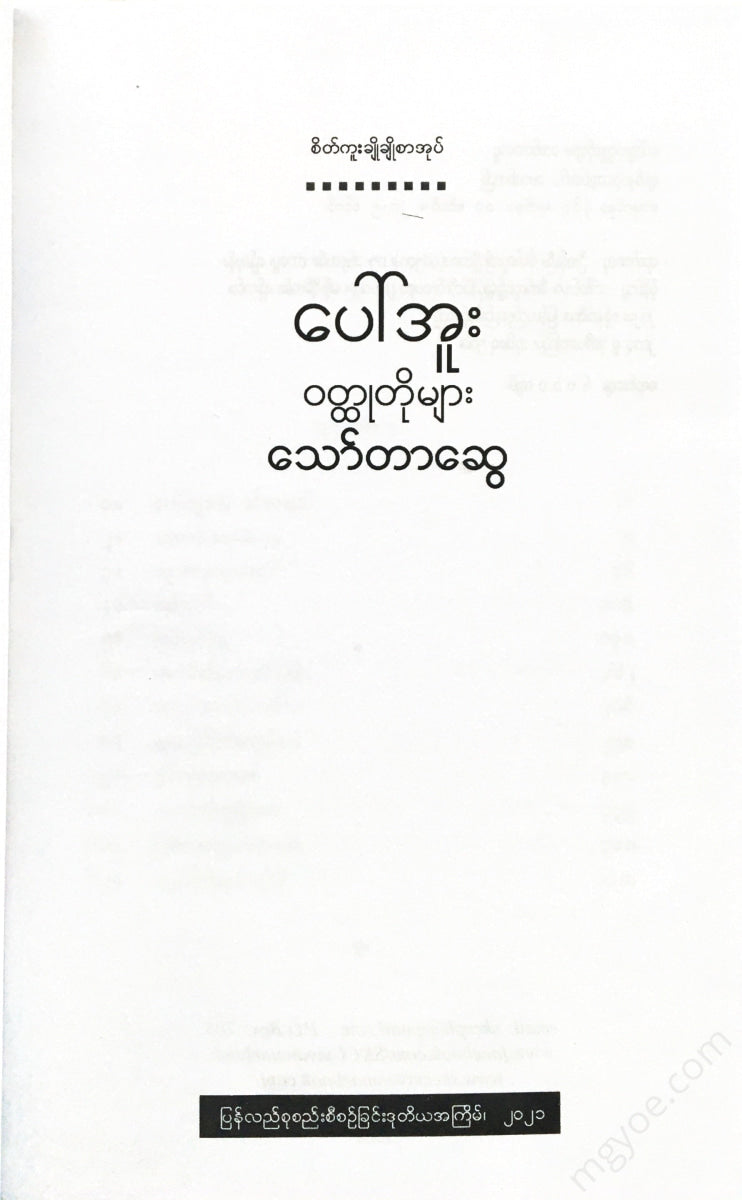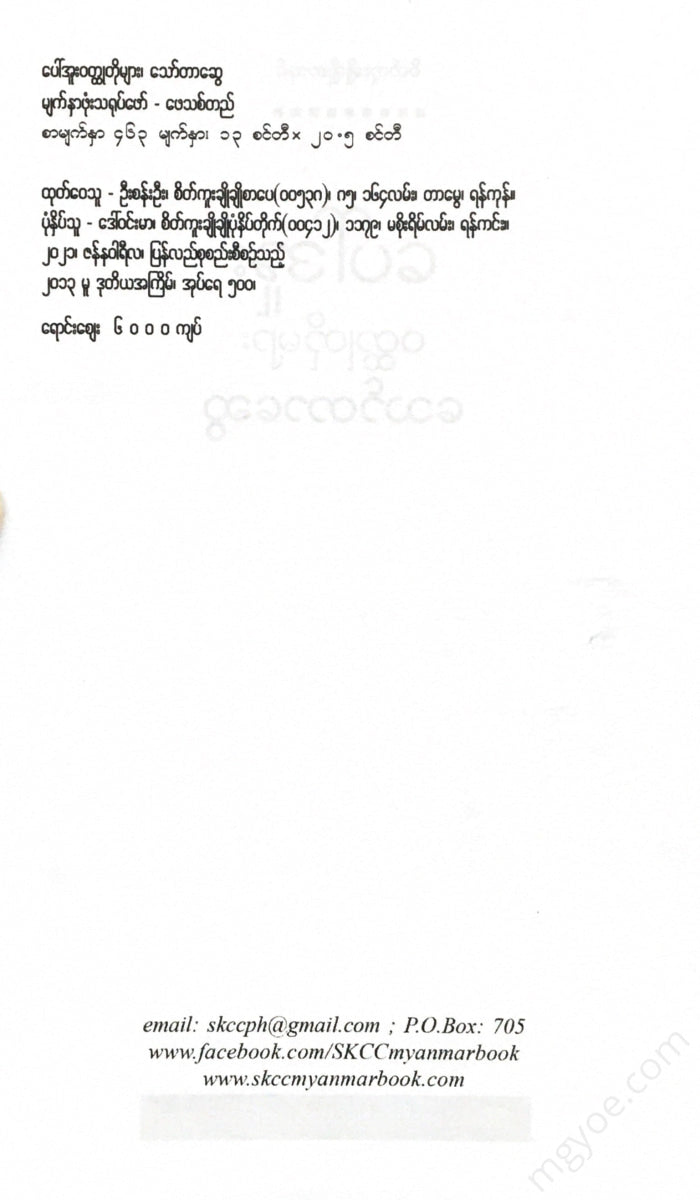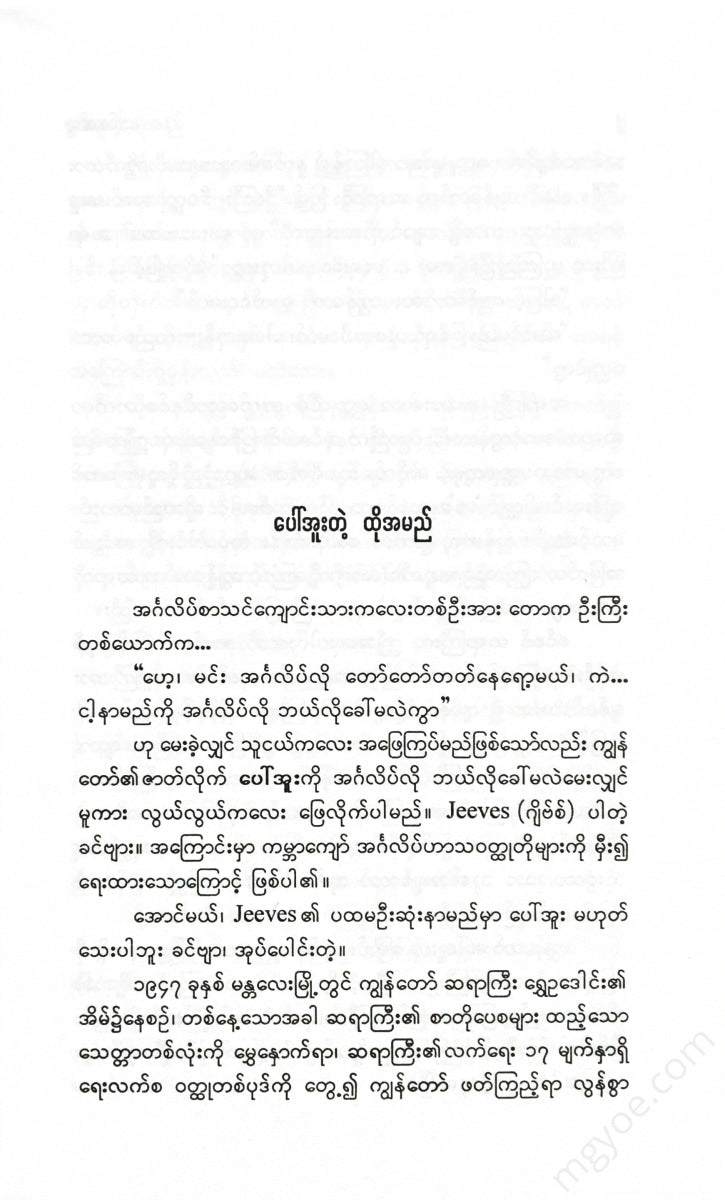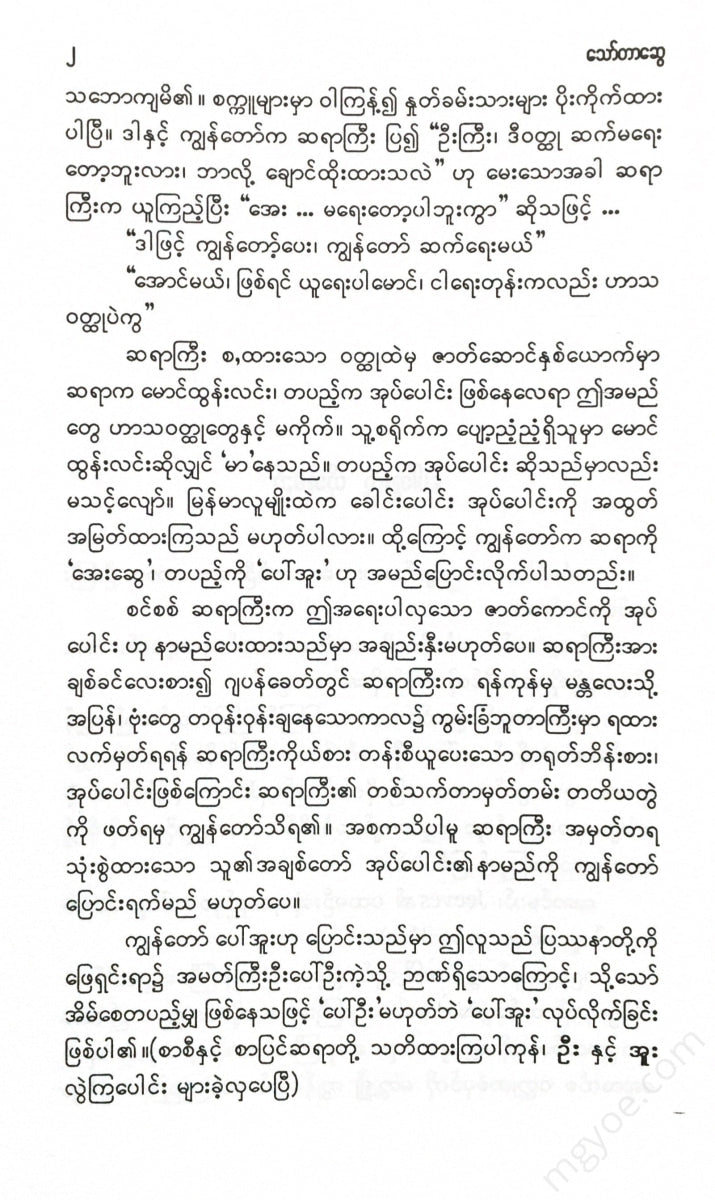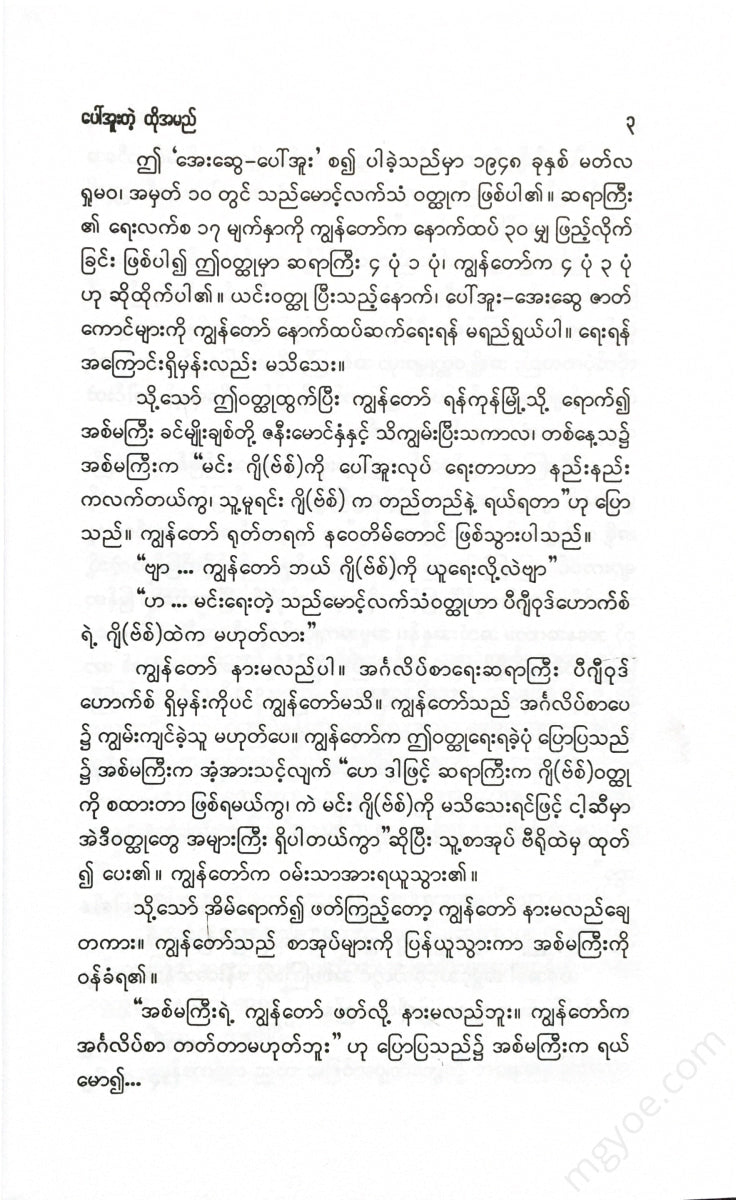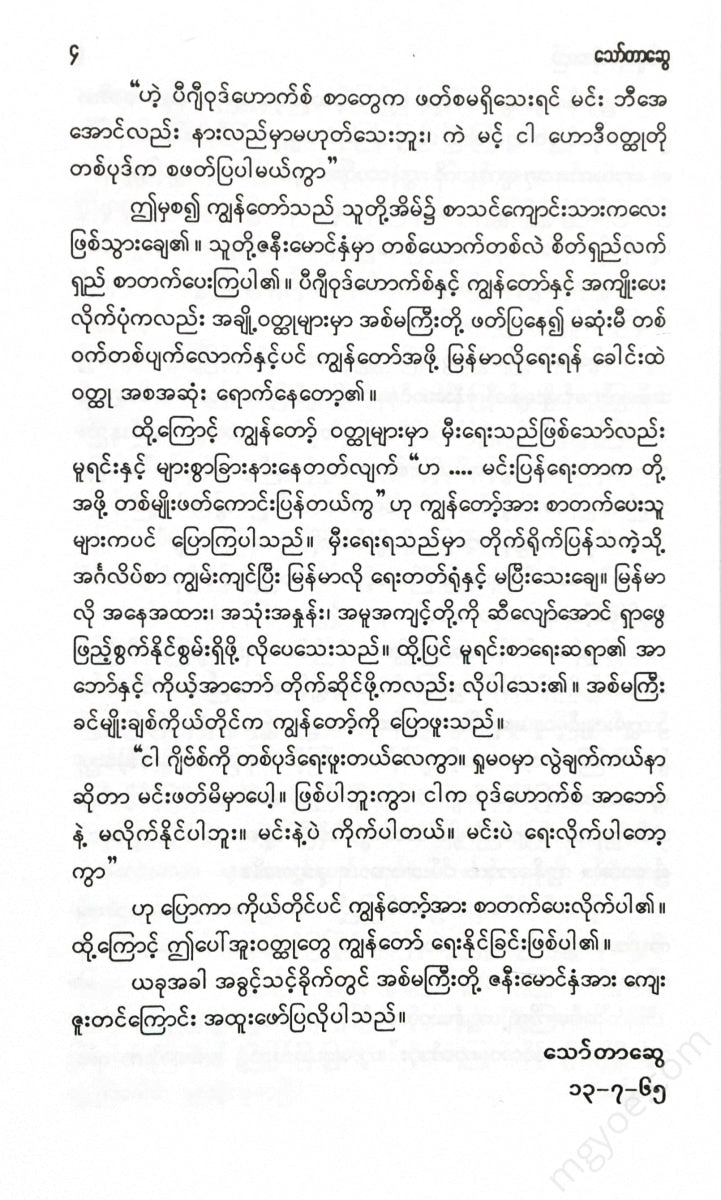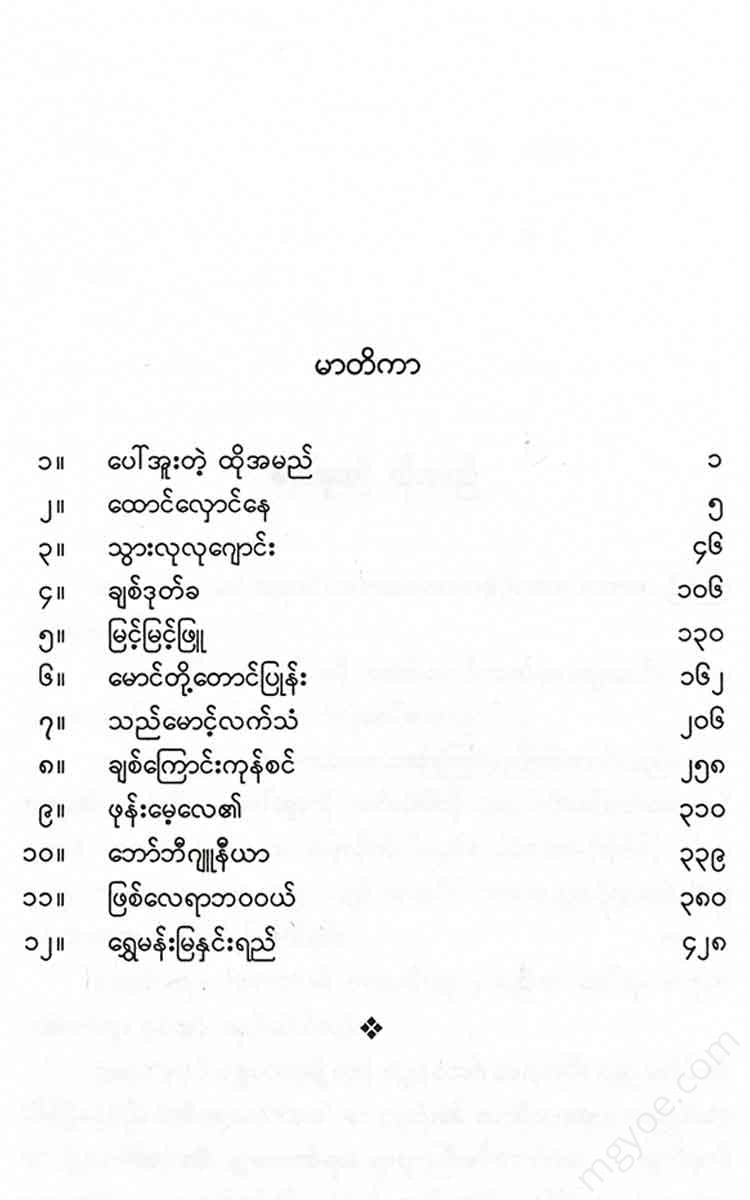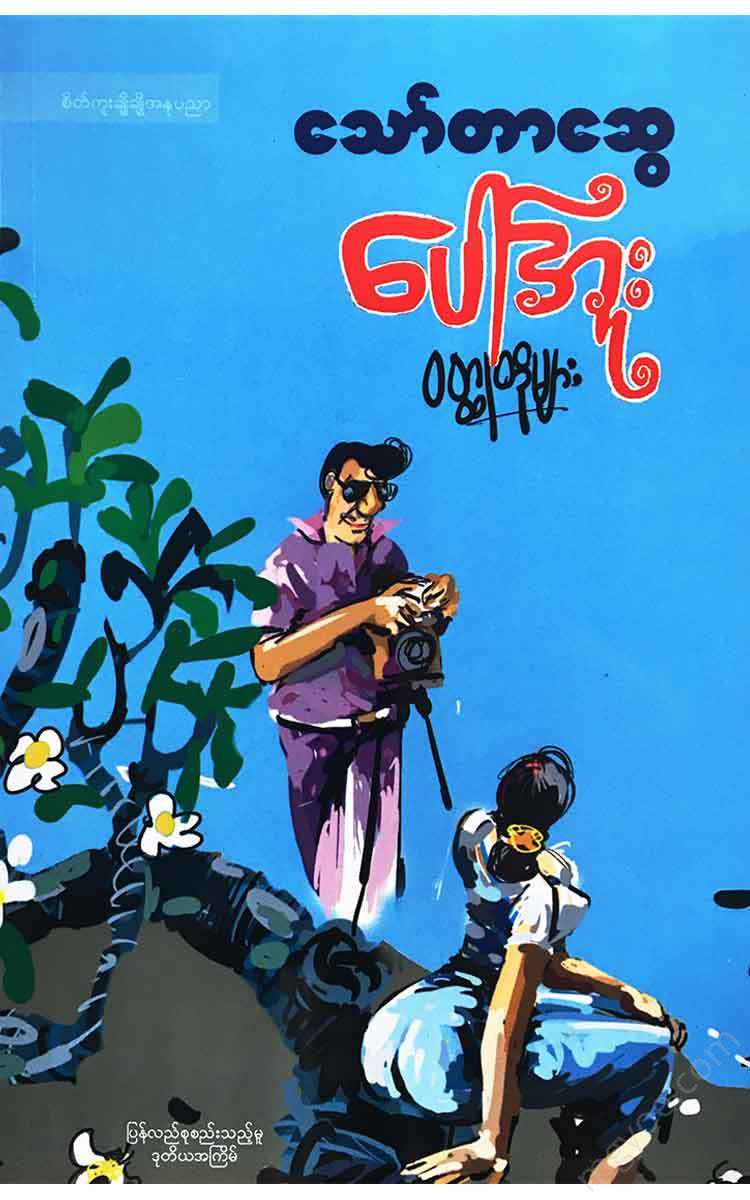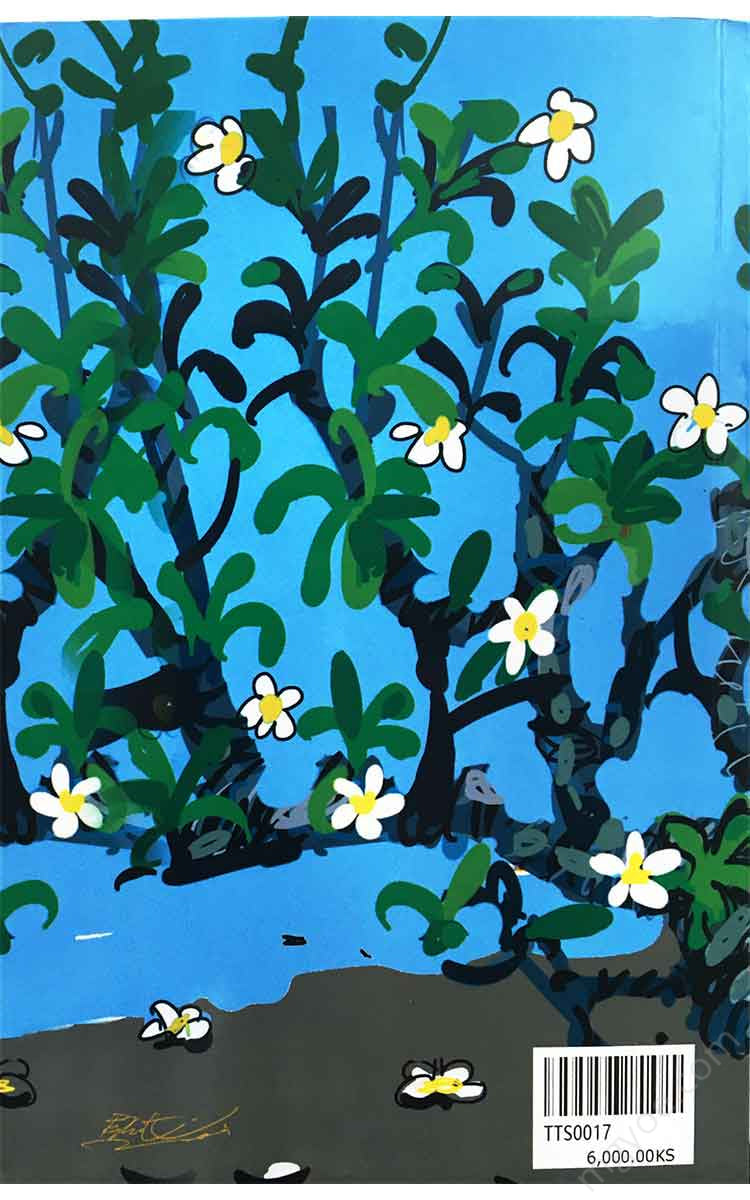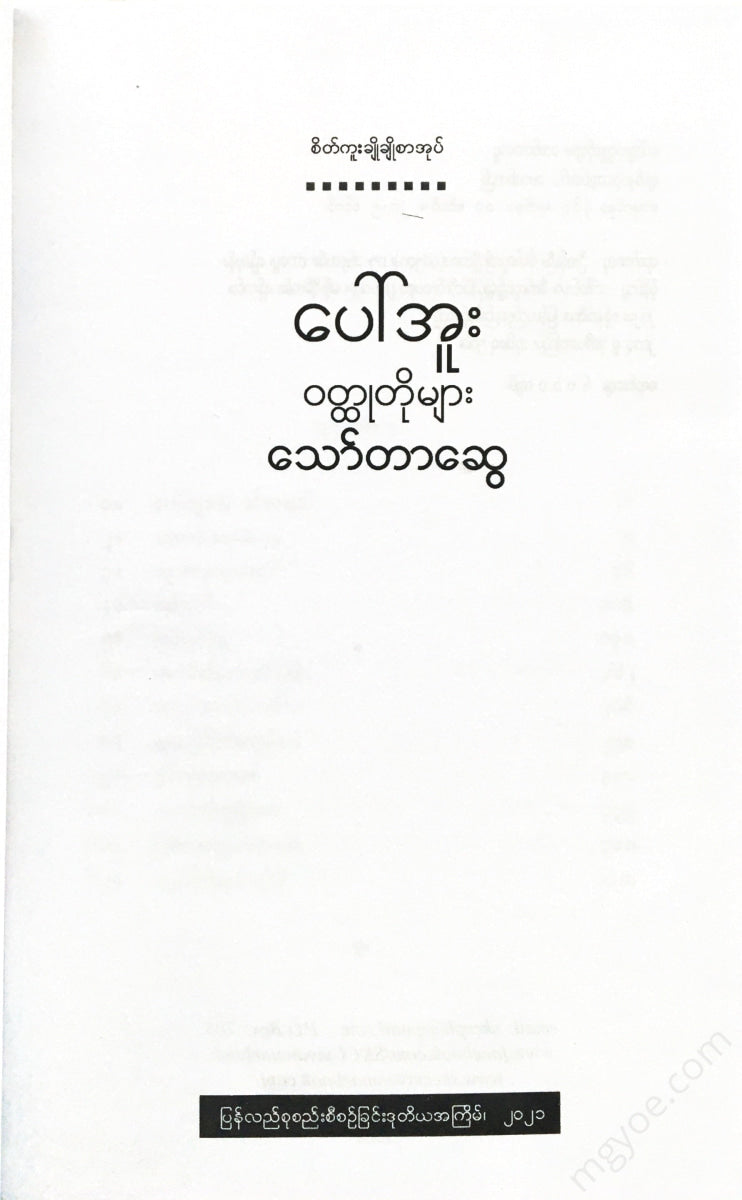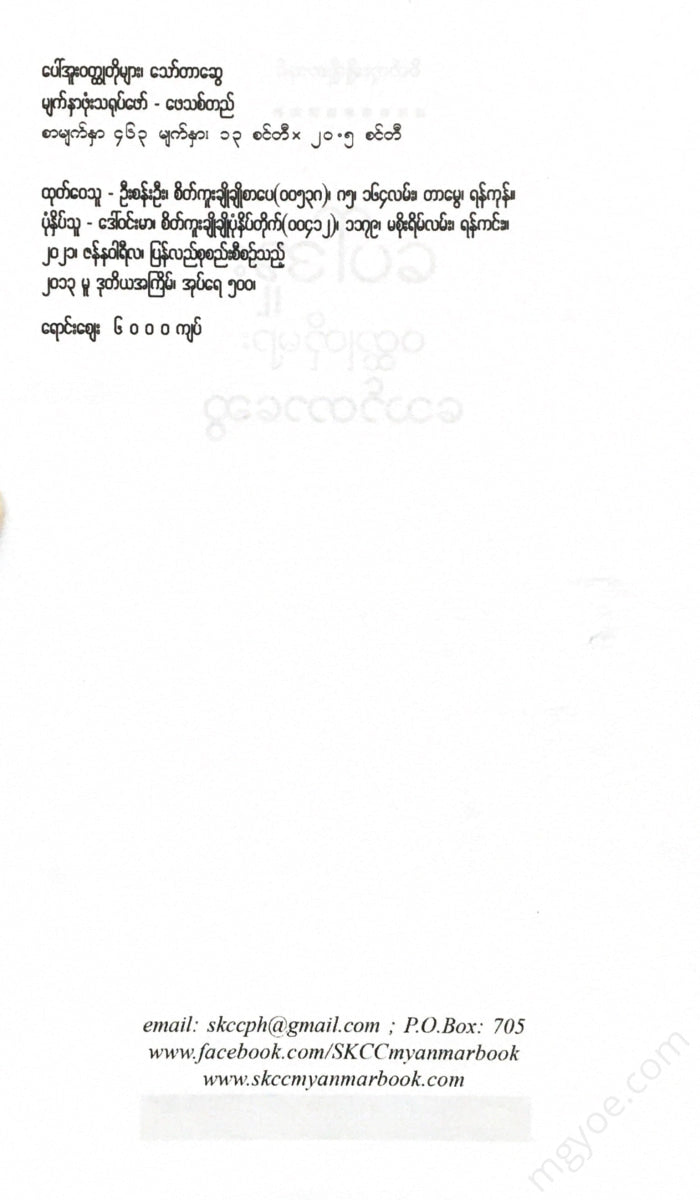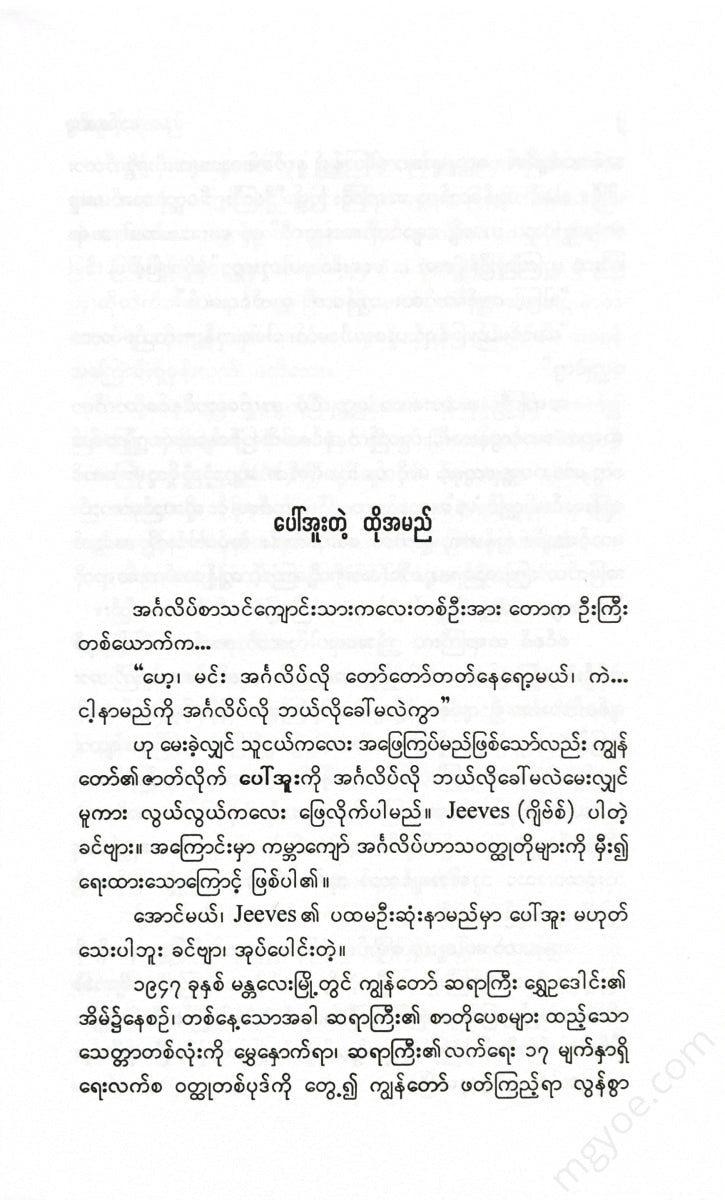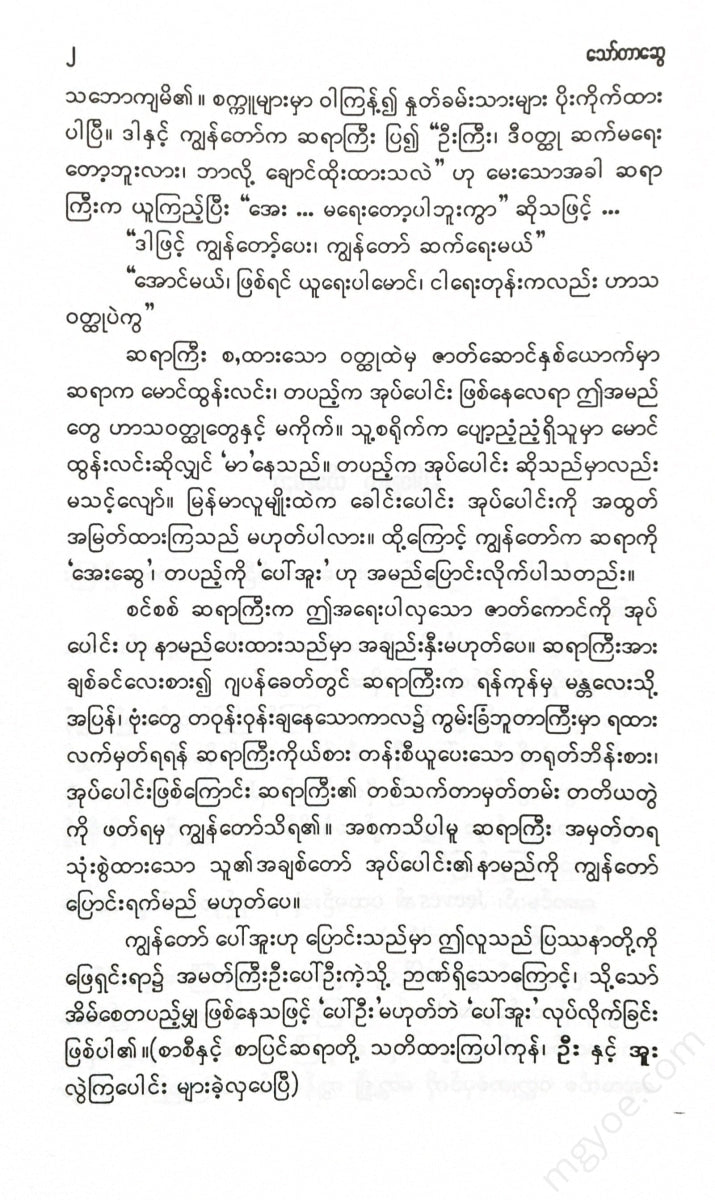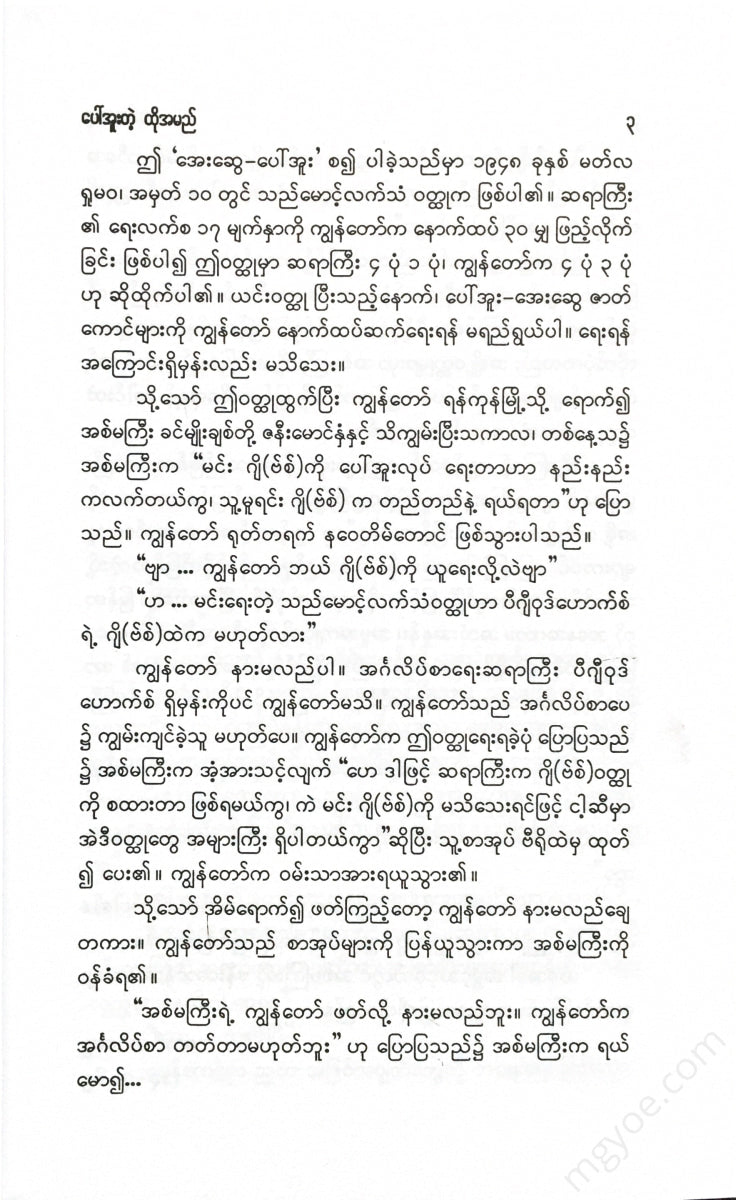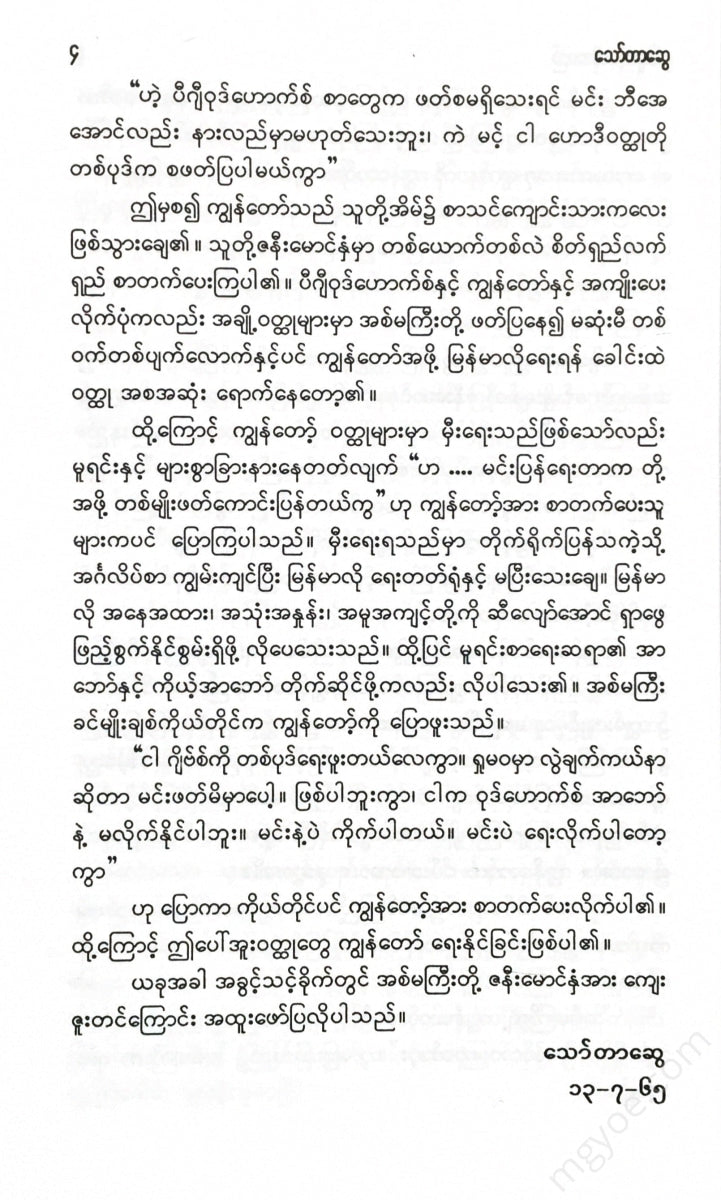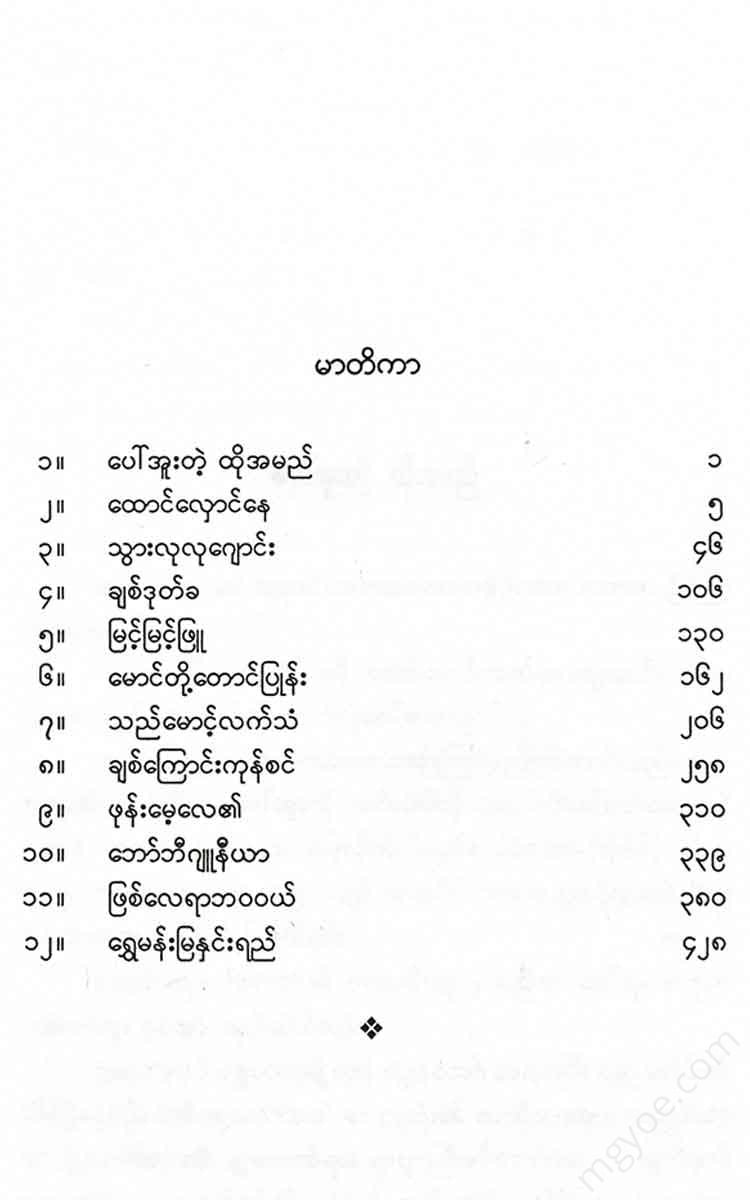စိတ်ကူးချိုချိုစာပေ
Thawta Swe - Short Stories of Poo U
Thawta Swe - Short Stories of Poo U
Couldn't load pickup availability
That name is so funny.
A young English student was told by a village elder...
"Hey, you must be pretty good at English, so... how would you pronounce my name in English?"
If you ask me, I'll be a little confused, but if you ask me what my character Paul is called in English, I'll answer easily. Jeeves. Because he wrote the world-famous English comic strips.
Okay, Jeeves' first name isn't Pauw, sir, but a bunch of them.
In 1947, I was at the house of Shwe U Daung in Mandalay. One day, while rummaging through a box containing his notebooks, I came across a 17-page novel in his handwriting. I read it and was very impressed. The paper was faded and the edges were worm-eaten. So I showed it to him and asked, “Uncle, are you not going to continue writing this book? Why are you hanging it up?” He looked at it and said, “Oh, I’m not going to write anymore.”
“So give it to me, I will continue writing.”
"Aung, if you can, write it, bro. When I wrote it, it was a comic book."
In the novel written by the teacher, the two main characters are Maung Htun Lin and the student is Ok Paung, so these names do not fit in with comedies. If Maung Htun Lin is a weak person, he is called “strong”. The student is also called Ok Paung. Aren’t the Burmese people considered the head of the school to be the most important? That is why I changed the name of the teacher to “Aye Swe” and the student to “Paw Oo”.
It is not for nothing that the Master named this important character Okpaung. I learned only after reading the third volume of the Master's biography that it was the Chinese opium dealer, Okpaung, who, out of respect for the Master, had lined up for the Master to get a train ticket at the Kungchan Station during the Japanese era, when the bombs were still falling, while he was returning from Rangoon to Mandalay. If I had known that at first, I would not have changed the name of his beloved Okpaung, which the Master had used in his memory.
I changed it to Pao Oo because this person is as intelligent as the great minister Pao Oo in solving problems, but he is just a servant, so I changed it to “Pao Oo” instead of “Pao Oo.” (Please be careful, typists and editors, there have been many cases of U and Bu being mixed up.)
This “Aye Swe-Paw U” was first published in the March 1948 issue of the magazine “The Mountain Letsham Wutthu”. I have added 30 more pages to the original 17 pages of the Master, so this novel is 1/4 of the Master and 3/4 of me. After finishing this novel, I do not intend to continue writing about the characters of Paw U-Aye Swe. I do not know if there is any reason to write about it.
However, after this novel was published, when I arrived in Yangon and met my older sister, Khin Myo Chit, and her husband, one day my older sister said, “It’s a bit difficult to write about you (Bs) as a poet, but his original (Bs) is a real laugh.” I suddenly became confused. .
"Well... which jibes should I use?"
“Huh.. isn’t that Mount Lethbridge novel you wrote from P.G. Woodhouse’s Jeeves?”
I didn't understand. I didn't even know that the English writer Peggy Woodhouse existed. I was not an expert in English literature. When I told her how I came to write this novel, my sister was surprised and said, "So you must have started with Jeeves. Now, if you don't know Jeeves, I have many of those novels." She took them out of her bookcase and gave them to me. I happily took them.
But when I got home and read it, I couldn't understand it. I took the books back and confessed to my sister.
"Big sister, I can't read it. I don't know English," he said, and the big sister laughed...
"Hey, if you haven't read P.G. Woodhouse's writings, you won't understand my BA either. Now, I'll start by reading you a short story."
From then on, I became a student in their home. They both patiently taught me. The way I treated P.G. Woodhouse and I was rewarded was that my older sister read some of the novels to me, and before I finished reading them, I had already made up my mind to write them in Burmese.
Therefore, even though my novels are adapted, they are often very different from the originals, and my tutors say to me, “Huh... your rewrites are a different story for us.” Adapting is not just about being fluent in English and writing in Burmese, as is directly adapted. You also need to be able to find and fill in Burmese situations, expressions, and behaviors. In addition, you also need to match the original author’s tone with your own. My elder sister Khin Myo Chit herself once told me this.
"I once wrote a piece to Jeeves. You must have read it, "The Mistake in the Forest." No, I can't keep up with Woodhouse's style. I'll just stick with you. You write it yourself."
He said, "He personally gave me the education. That's why I was able to write these epic novels."
Now, at this opportunity, I would like to express my special gratitude to my wife and sister.
Thawtar Swe
13-7-65
